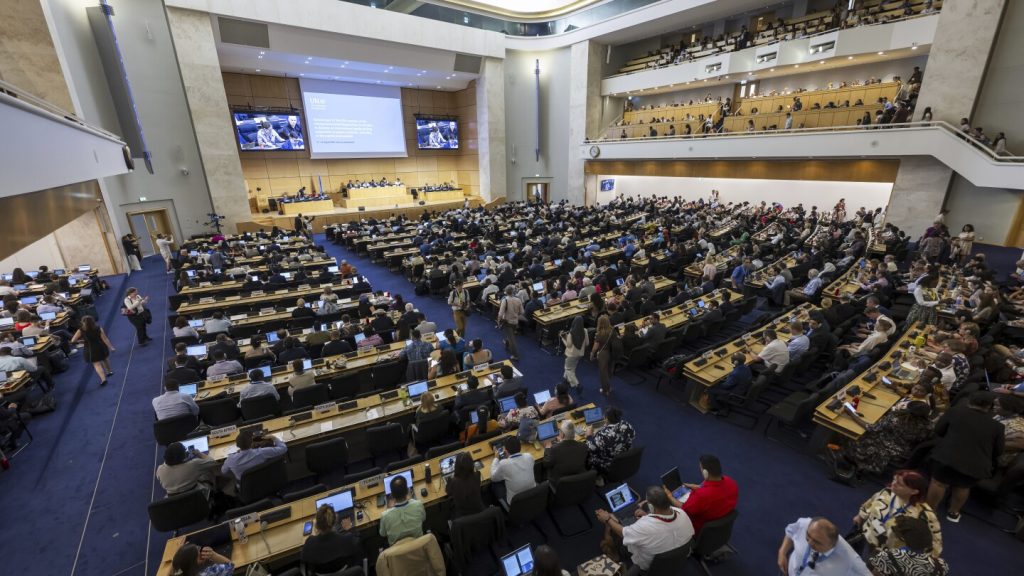Negotiations on Global Plastic Pollution Treaty
GENEVA (AP) — Negotiations for a global treaty to eliminate plastic pollution are set to conclude on Friday, but nations remain at a standstill regarding how to address the rapid increase in plastic production.
Delayed Meeting for Negotiators
A new draft of the treaty was anticipated on Thursday, the final day of negotiations, with a delegate meeting planned. However, it was delayed multiple times until just before midnight. Luis Vayas Valdivieso, the chair of the negotiating committee, gathered delegates but noted ongoing consultations about the revised draft, adjourning swiftly before the audience’s surprised reactions. The talks will reconvene on Friday.
Dissatisfaction with Current Treaty Draft
Norway’s climate and environment minister, Andreas Bjelland Eriksen, expressed relief at the meeting extension, asserting it’s preferable to ending talks prematurely. Many countries, including Norway, find the current treaty text unacceptable. “It means the chair still believes progress is possible,” he stated.
Focus of the Draft Treaty
The draft treaty released on Wednesday does not aim to restrict plastic production or address toxic chemicals associated with plastics. Instead, it focuses on widely agreed proposals that seek to minimize problematic plastic products, encourage product redesign for recyclability, and enhance waste management. Rather than imposing binding global regulations, it invites nations to commit to ending plastic pollution.
Global Leaders Call for Action
French President Emmanuel Macron criticized the draft’s “lack of ambition,” urging nations in Geneva to adopt a text that addresses urgent environmental and health crises. “What are we waiting for to take action?” he questioned while calling for collective action to secure a beneficial treaty for the environment and future generations.
Support and Opposition from Various Countries
While approximately 100 nations are pushing for production limits and cleanup initiatives, some oil-producing countries and the plastics industry oppose these limits, advocating for a focus on improved waste management instead. Iraq’s delegation expressed conditional support for restricting certain chemical additives, aiming to strike a balance between environmental and economic considerations.
Final Stretch of Negotiations
As these discussions mark the sixth round of negotiations, many are apprehensive about potentially repeating past failures. Some delegates, like Fiji’s Sivendra Michael, insist that this meeting must conclude with a satisfactory treaty rather than delay further, while others, like Ethiopia’s Hiwot Hailu, remain open to continued talks if necessary.



